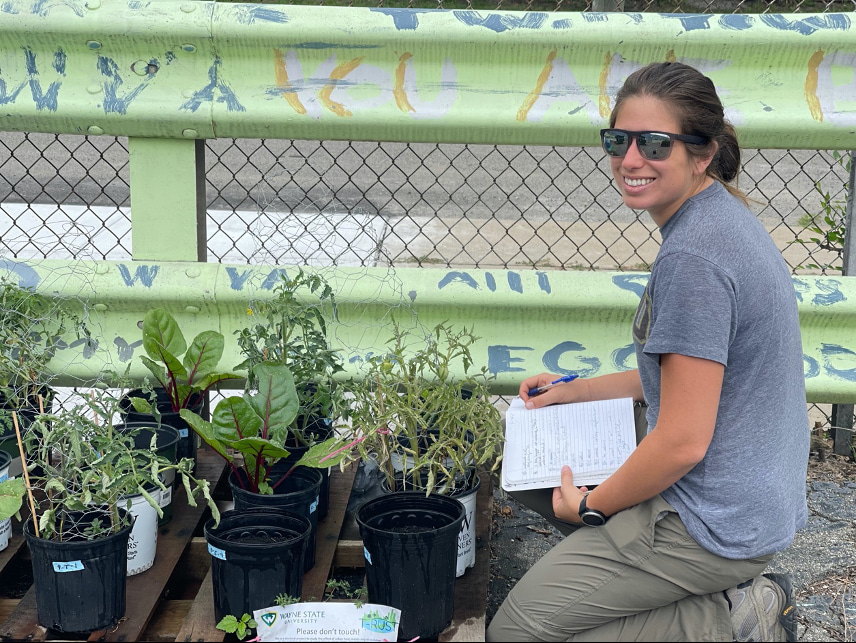Growing crops in the city
Ph.D. student Sarah Black studies urban pollution and agriculture
Sarah Black found her way to Wayne State while working in and around the City of Detroit. As a federal regulator with the U.S. Army Corp of Engineers, she spent a lot of time studying pollution in post-industrial cities.
While completing a master's thesis on restoration ecology and insect recruitment, Sarah began to wonder how contaminants, particularly legacy contaminants such as metals, moved through trophic levels in urban areas. In 2020, she joined the Hood Lab and is pursuing these questions for her Ph.D. research.

Now a National Science Foundation fellow in the interdisciplinary Transformative Research in Urban Sustainability Training (T-RUST) program at WSU, Sarah is evaluating the effects of heat islands and air pollution on urban agriculture. Last summer, she partnered with twelve urban farms and community gardens throughout Detroit to test the idea that air pollution and heat islands interact to change plant uptake and sequestration of metals.
She is measuring yield and metal uptake in common garden produce. In addition, she is quantifying soil quality in vacant lots for potential conversion to agriculture, particularly in sections of the city suffering from food apartheid, or lack of access to supermarkets.
Sarah also recently joined the NIH-funded Center for Leadership in Environmental Awareness and Research (CLEAR) as a trainee, helping the Hood lab to pioneer the use of insect-induced plant galls to "phytoscreen" for belowground chemical contaminants, specifically volatile organic compounds (VOCs). She presented this research at the 2022 Graduate Student Symposium and placed second in the oral presentation category.
Sarah will present this work at the National Institute of Environmental Health Sciences 35th Anniversary of Superfund Conference in December in Raleigh, NC.